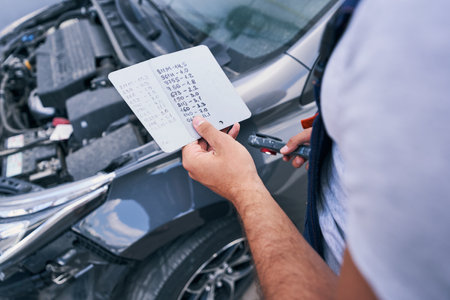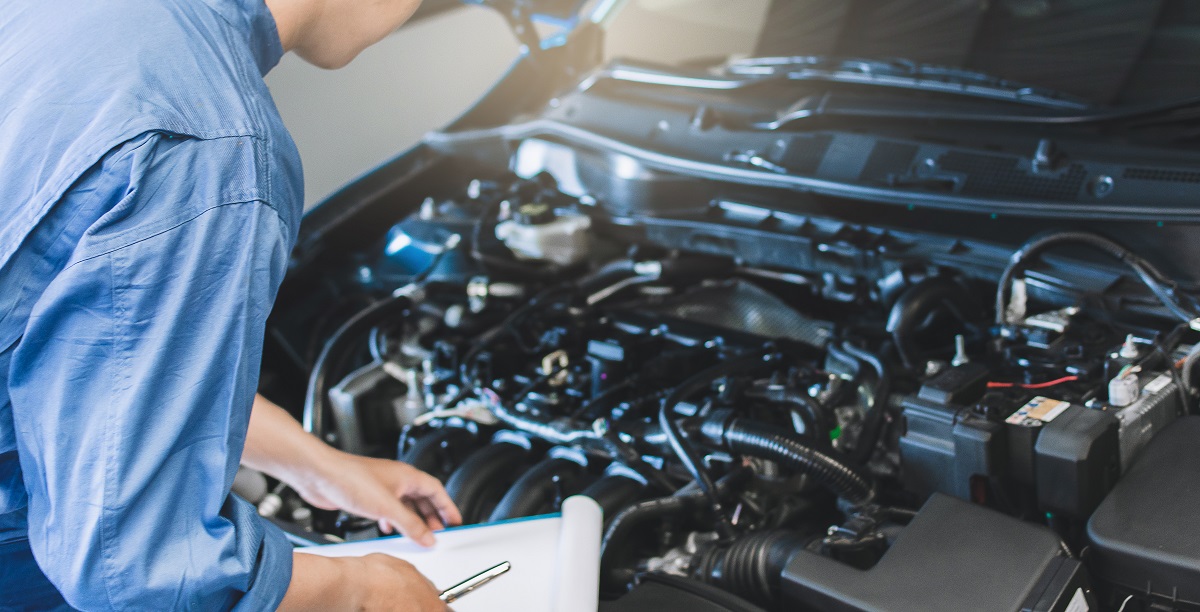Inspecting Cars Before Shipping from the UK to Kenya: Making Sure They’re Good Cars
Before shipping a car to Kenya from the UK, inspections are necessary to ensure the reliability and worth of vehicles. Thorough inspections before shipping a car from the UK assist in identifying any mechanical issues or other faults that may compromise the vehicle’s operation or safety.
To ensure compliance, adherence to import guidelines and requirements by the Kenya Bureau of Standards is important. Car importers will be at ease knowing that there is less chance of unexpected issues and extra expenses when vehicles are inspected before shipment. Additionally, it increases confidence and trust between buyers and sellers. This article will discuss the value of vehicle inspections and stress the need to inspect cars before shipment, highlighting the role that this process plays in guaranteeing the condition of vehicles being transported.
Inspections play a crucial role in ensuring the reliability and worth of vehicles. By conducting thorough inspections before shipping a car from the UK, we can identify any mechanical issues or faults that may compromise the vehicle’s operation or safety. This proactive approach helps to minimize the chances of unexpected issues and extra expenses for car importers. Moreover, it instills confidence and trust between buyers and sellers, as adherence to import guidelines and requirements set by the Kenya Bureau of Standards is ensured. Our clients can be at ease knowing that they will be informed every step of the way and that we prioritize their satisfaction by guaranteeing the condition of the vehicles being transported.
Importance of Vehicle Inspection Before Shipping from the UK to Kenya:
Inspecting a vehicle before shipping from the UK to Kenya is crucial for several reasons:
- Compliance with Regulations: The Kenyan Bureau of Standards (KEBS) has strict regulations regarding imported vehicles, including age restrictions and safety standards. Ensuring that the vehicle meets these requirements through inspection helps avoid potential issues or rejection upon arrival in Kenya.
- Safety and Quality Assurance: A thorough inspection before shipping guarantees that the vehicle is in good condition, both mechanically and structurally. This helps prevent any safety hazards or malfunctions that could arise during shipping or upon use in Kenya.
- Prevention of Costly Repairs: Identifying any existing issues or maintenance needs through inspection allows for necessary repairs or maintenance to be conducted before shipping. This proactive approach can prevent costly repairs or breakdowns after the vehicle reaches its destination.
- Smooth Customs Clearance: A comprehensive inspection report, like the one from Quality Inspection Services Japan (QISJ), simplifies the customs clearance process in Kenya. It ensures that the vehicle meets all required standards, making the importation process smoother and faster.
- Verification of Mileage: While QISJ does not verify odometer tampering, having an inspection certificate can serve as documentation of the mileage at the time of inspection, providing some level of assurance regarding the vehicle’s history.
- Legal Compliance: A pre-shipment inspection can help importers ensure that their vehicles meet regulatory standards, thereby avoiding fines, delays, and potential confiscation. This proactive measure guarantees legal compliance and minimizes legal repercussions.
Read about: The Best way to Ship Cars From UK to Kenya

Types of Vehicle Inspections before shipping from the UK to Kenya
Before shipping a vehicle from the UK to Kenya, the following types of inspections are typically conducted:
1. Pre-Purchase Inspections (PPI)
These inspections are conducted before purchasing a vehicle in the UK. They entail a comprehensive evaluation of the state of the car’s interior, exterior, mechanical, and electrical systems. PPIs give customers a thorough grasp of the vehicle’s condition and point out any possible problems, enabling them to make well-informed selections.
2. Pre-Shipping Inspections (PSI)
These inspections are specifically carried out before shipping the vehicle from the UK to Kenya. They focus on verifying the vehicle’s overall condition and ensuring it meets the import requirements of Kenya. PSI includes checking the vehicle’s documentation, verifying the Vehicle Identification Number (VIN), assessing the mechanical components, and inspecting for any modifications or alterations made to the vehicle.
3. Compliance Inspections for Import Regulations
The import regulations and standards for vehicles in Kenya must be met for legal importation. The vehicle’s compliance with requirements, such as emission standards, safety features, and roadworthiness, is ensured through inspections. These inspections are essential for facilitating a seamless importation process and preventing any complications or delays.
Key Aspects Checked During Vehicle Inspections
During vehicle inspections, several key aspects are checked. They ensure the quality and condition of the vehicle. The following are included in the checks:
A. Mechanical Components and Engine Performance:
The mechanical components of the vehicle, such as the engine, transmission, suspension, brakes, and steering system, are meticulously inspected by inspectors. becomes:
The mechanical components of the vehicle are meticulously inspected in the process of being checked over. This includes the engine, transmission, suspension, brakes, and steering system.
The overall performance is assessed, any signs of wear or damage are looked for, and proper functioning is checked. Potential mechanical issues that may affect the vehicle’s performance and safety are identified.
B. Structural Integrity and Body Condition:
The structural integrity of the vehicle is crucial for safety and durability. Inspectors assess the body condition, looking for signs of rust, corrosion, or damage. They check the frame, chassis, body panels, and undercarriage to ensure they are structurally sound. Any structural issues can compromise the vehicle’s safety and longevity.
C. Electrical Systems and Safety Features:
Inspectors assess the car’s electrical systems, which include the audio system, power windows, dashboard controls, and lighting. They check that the anti-lock brake systems, seatbelts, airbags, and other safety measures are in good operating condition and that all electrical components are functioning as intended. This aids in ensuring that the car satisfies safety requirements.
Read About: Understanding Import Regulations for Vehicles from UK
How to Choose a Reliable Inspection Service Provider
The factors to consider when choosing a reliable inspection service provider for your vehicle are:
A. Researching Reputable Inspection Companies
Take the time to research and identify reputable inspection companies that specialize in conducting thorough vehicle inspections. Look for companies with a strong track record and positive reputation in the industry. Online search engines, industry directories, and recommendations from trusted sources can help you find reliable service providers.
B. Considering Experience and Expertise in Vehicle Inspections
Select an inspection service provider with plenty of expertise and understanding of performing car inspections as your top priority. Seek out businesses that employ a staff of licensed and qualified inspectors who have in-depth knowledge of various car makes and models. Given their familiarity with Kenya’s import laws and regulations, experience conducting inspections for automobiles destined for the country is very important.
C. Reading Customer Reviews and Testimonials
Testimonials and reviews from clients offer insightful information about the level of services that inspection companies undertake. Examine reviews on reliable websites or platforms to get a sense of past consumers’ experiences. Positive testimonies and evaluations point to a high degree of dependability and client satisfaction.
The Inspection Process and Documentation
A. Scheduling and Conducting the Inspection
After selecting an inspection service provider, you will need to arrange for the inspection. Work with the provider to find a convenient time and place for the inspection. Depending on the arrangements, the inspector may travel to the vehicle’s location or the vehicle may need to be brought to the inspection facility. During the inspection, a qualified inspector will carefully inspect the vehicle according to established standards.
B. Detailed Inspection Reports and Documentation
After completing the inspection, the service provider will prepare a detailed inspection report. This report includes comprehensive information about the vehicle’s condition, highlighting any issues or concerns discovered during the inspection. The report typically covers mechanical components, body condition, electrical systems, safety features, and compliance with import regulations. The inspection report is essential for both buyers and sellers, providing a clear overview of the vehicle’s condition by the time of inspection. It serves as an important document.
C. Communicating Findings with Sellers and Buyers
The findings in the inspection report need to be communicated to both the seller and the buyer once it is completed. The inspection service provider will share the report with the appropriate parties, ensuring that all relevant information is conveyed accurately. The report facilitates open communication and negotiation between the buyer and seller if any issues or concerns arise during the inspection. Necessary repairs, adjustments to the purchase price, or other resolution options can be discussed and agreed upon.
Conclusion
Vehicle inspections before shipping from the UK to other countries, such as Kenya, are very important to make sure that the cars being imported are in good condition and safe to use. Inspectors carefully check the different parts of the car, like the engine, body, and electrical systems, to find any problems that could affect how the car works or make it unsafe. By doing these inspections, we can avoid unexpected repairs and extra costs. Overall, inspections are really important to protect the quality and safety of the cars when they are being shipped from the UK to Kenya.
